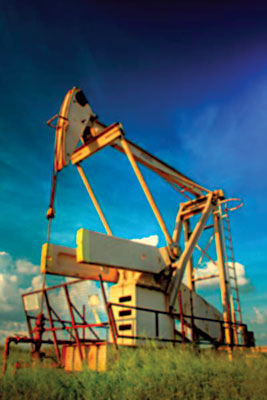All Nonfiction
- Bullying
- Books
- Academic
- Author Interviews
- Celebrity interviews
- College Articles
- College Essays
- Educator of the Year
- Heroes
- Interviews
- Memoir
- Personal Experience
- Sports
- Travel & Culture
All Opinions
- Bullying
- Current Events / Politics
- Discrimination
- Drugs / Alcohol / Smoking
- Entertainment / Celebrities
- Environment
- Love / Relationships
- Movies / Music / TV
- Pop Culture / Trends
- School / College
- Social Issues / Civics
- Spirituality / Religion
- Sports / Hobbies
All Hot Topics
- Bullying
- Community Service
- Environment
- Health
- Letters to the Editor
- Pride & Prejudice
- What Matters
- Back
Summer Guide
- Program Links
- Program Reviews
- Back
College Guide
- College Links
- College Reviews
- College Essays
- College Articles
- Back
Why You Should Support Fracking
Fracking is a very controversial environmental topic. Some politicians consider it to be extremely useful whereas some think that it should be banned. You might be wondering, what even is fracking?
Here is how it works.
In essence, water, chemicals and sediment are forced into fissures deep underground where there are pockets of oil. This creates a passageway from the surface to the oil fissures allowing for effective access. Then the elements are withdrawn from the crevice along with the oil. This process allows us to reach oil reservoirs underground that other machines and mechanisms cannot. Not only is it beneficial for reaching energy demands, it can decrease the greenhouse gasses in our atmosphere which has significant benefits to our health. However these fissures can cause leaks, especially when they are below lakes or other bodies of water, leaking chemicals into our drinking water. These drawbacks however can be avoided.
I acknowledge that the biggest drawback to fracking is its impact on the quality and amount of water that is available to the public. According to the EPA, “Thirteen of the 151 [UG] spills characterized by the EPA were reported to have reached a surface water body (often creeks or streams). Among the 13 spills, reported spill volumes ranged from 28 gallons (105 liters) to 7,350 gallons (27,800 liters)” (Hydraulic Fracturing for Oil and Gas). This statistic displays that the spills caused by fracking are detrimental to the quality of the water that is available to the public. A solution to this issue would be to avoid drilling and extracting oil from underneath or around waterbeds. Another issue that is posed by this method is the fact that it relies heavily on water, and a singular well uses anywhere from 11 and 34 million liters of water (Peduzzi). These drawbacks are significant, but the benefits of using this technique clearly outweigh its drawbacks.
We know that our climate is changing. According to a figure from NASA, the levels of CO2 in our atmosphere is twice as much as it has been in 450,000 years. It is considered a greenhouse gas, and according to this diagram, the levels of CO2 in our atmosphere has increased astronomically over an extremely short period of time in earth's history.These greenhouse gasses that have been created by humans are mostly from our demand of electricity. 96% of the world's electricity is produced through Coal, Hydro, Nuclear, Oil and Natural Gas Power. All of these methods aside from Nuclear and Hydro power produce greenhouse gasses that capture the sun’s rays and heat up our atmosphere. (Hassan). According to an article by the Geneva university, “UG(unconventional gas) produces more greenhouse gas emissions as compared to non-renewable sources of energy however it is an alternative to other renewable sources since it produces less parts of CO2 per KWh as compared to coal and oil” (Peduzzi).
In essence, UG is not the best source of energy. It is not really a feasible long term solution to the world’s energy demands. It also does produce greenhouse gasses, something that we are attempting to lower in our atmosphere. However implementing UG more in ways that are mindful of surrounding waterbeds will be an improvement over our current methods of obtaining energy, making it the perfect transitioning system into a world with clean energy sources along with lower global temperature and lower amounts of CO2.
Bibliography
Pumpjack. (2018, December 29). Retrieved January 9, 2019.
Peduzzi, Pascal, Reis, H. R., & Ruth. (1970, January 01). Gas fracking: Can we safely squeeze the rocks?
Hydraulic Fracturing for Oil and Gas: Impacts from the Hydraulic Fracturing Water Cycle on Drinking Water Resources in the United States (Final Report). (2017, November 15). Retrieved January 9, 2019.
Climate change causes: A blanket around the Earth. (2018, August 08). Retrieved January 9, 2019.
Hassan, M. U. (2014). POWER GENERATION METHODS, TECHNIQUES AND ECONOMICAL STRATEGY. International Technical Sciences Journal, 1(1), 43-61. Retrieved January 9, 2019.

Similar Articles
JOIN THE DISCUSSION
This article has 0 comments.
Jaiveer is a 10th grade student. He originally wrote this piece for his AP Seminar class. He has written multiple essays on topics regarding the environment, historical events and english literature. He enjoys playing almost all types of sports, discussing the environment and anything related to cars.